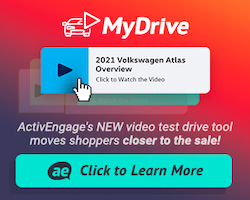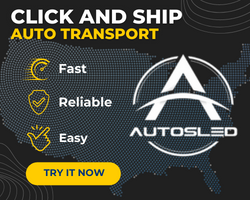
When I first joined the auto industry, I was shocked to learn that some dealers had yet to solidify their web presence with a full-featured web site. After all, the Internet is the most utilized research tool in the vehicle purchase process and the easiest way to garner attention toward your vehicles from those who are in the market. Fast forward a few years and we’re now at a point where the vast majority of dealers use a third party website provider to manage their web presence. It was a slowly adopted change that was necessary for the advancement of the industry, but now that all dealers have their own website, what’s the next step?
What will it take to adopt the latest trends and break free from the pack of like- minded web properties?
One Sided Experience
As it stands, the function of the “dealer website” that we’ve all come to know so well is highly one sided. The experience of the vehicle shopper is similar to that of a classified site whereby the content is dominated by specials, promotions, and inventory that the dealer thinks the user will appreciate. We’re guilty of this as well. We tag vehicles as specials that we believe will attract attention in the hopes of generating quality leads, but do users really care what the dealer thinks is important?
Innovation From Netflix
Netflix has an amazing website that tailors the experience to the interests and browsing patterns of each visitor. They do all of this with the help of some fairly robust infrastructure & engineering teams, but the principles remain relevant — give users what they want so they’ll spend more time on your site & come back more frequently to utilize your tool.
Every visit to the Netflix website is different, providing a sense of identity for an individual user that is unmatched on other platforms. Furthermore, Netflix makes use of prediction models to suggest content on the site that will be relevant to an individual user. The more accurate the prediction model, the easier it is for users to find what they’re looking for and the higher the likelihood that they will return in the future.
Application on Dealer Sites
Modern dealer sites are a great tool for taking a selection of inventory and filtering down options to ultimately reach a match that suits the user’s tastes. From a macro perspective though, this process requires a fair amount of work on the user’s behalf before any tangible decision can be made and there is no tool available to bypass this process during a return visit. We can start utilizing modern web technologies to create a new breed of dealer sites – sites that function as more of a smart web app than a standalone classified tool.
Prediction Models
The average dealer does not have the resources available to implement complex prediction algorithms in the same fashion as Netflix. Luckily, there are third party tools and APIs available for developers to utilize these functions without having to invest in the entire infrastructure necessary to predict content. As time goes on, these tools will become increasingly accessible to the forward-thinking dealers – the question is whether or not this is of any priority to website vendors (or dealers for that matter) in the industry and who will make the first move in adopting the technology.
Once implemented, the experience on a dealer site quickly turns toward a user-centered shopping experience similar to that of Amazon where the site is not only a listing of all available inventory, but also a tool for helping the user find what they’re looking for based upon their unique interests.
Favorites
For the first 4 months of 2012, 30% of our web traffic consisted of returning visitors. Many of these visitors will have undoubtedly viewed our inventory and gone through the process of filtering our vehicles multiple times before eventually moving elsewhere. Is it in our best interests to force them through this same monotonous process each time they visit?
User favorites are a current trend being under-utilized in the auto industry. I recently noticed Edmunds.com added a tool for saving vehicles (without requiring registration), but I have yet to see a widespread adoption of this idea across individual dealer sites. When users save vehicles, they have an increased incentive to return to your dealership’s website because they have already shown interest in something and they’ve made it easy to locate. Smart websites like Amazon use this data to offer increased incentives for returning visitors to convert online and increase revenue. With so many dealers being involved in a single shopper’s buying decision, every additional tool counts.
Browsing Activity
Prediction models make use of browsing activity in their algorithms, but when I refer to browsing activity, I’m talking exclusively about tracking the pages that users view via cookies. Keep in mind this doesn’t mean that some webmaster is sitting in a room looking at every single page that you’ve viewed on your computer at 2am. This is merely a method of tracking browsing history in order to create a tool for users to access information that they’ve already seen on your site.
We’re aiming to make the experience on a dealer site as easy and painless as possible, so if I have to go back to a search page and repeatedly input filters to find vehicles, then we’re doing it wrong. Giving users access to vehicles they’ve already viewed is a great way to easily get them back to that vehicle details page to convert and start working with your sales team.
What do you think? Are these features important enough to your dealership/group to implement?
What challenges do we need to overcome as an industry to make it happen?







